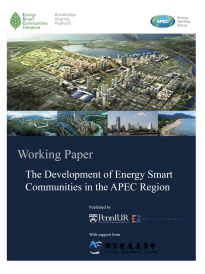Key Message
Effective development of low-carbon model towns in the APEC region relies on overcoming barriers related to funding, monitoring, capacity, and policy integration. The study highlights that economies with cohesive national and subnational policies achieve higher levels of energy-smart community deployment and better performance verification. By fostering collaboration and sharing best practices, APEC economies can enhance their efforts towards sustainable urban development and contribute significantly to global energy conservation goals.




